This article may contain affiliate links. See our Affiliate Disclosure to learn more.
When working as a consultant, a CRM is one of the most essential tools you can have in your arsenal.
Indeed, a CRM (or Client Relationship Management) tool helps you track potential clients, current clients and former clients. You can record and store all conversations, interactions, purchases and much more.
The better you know your clients, the more successful you will be as a consultant.
After working in this field for many years, I was bombarded with all the CRM options available to consultants.
So, to help you narrow down your CRM options, I’ve compiled a list of the best CRMs for consultants with reviews and more details later in the article:
Moxie has really taken the market by storm over the past few years. With Moxie, you not only have a robust CRM tool, but you can also integrate almost every other part of your consulting business (proposals, invoicing, time tracking, collaboration and much more).
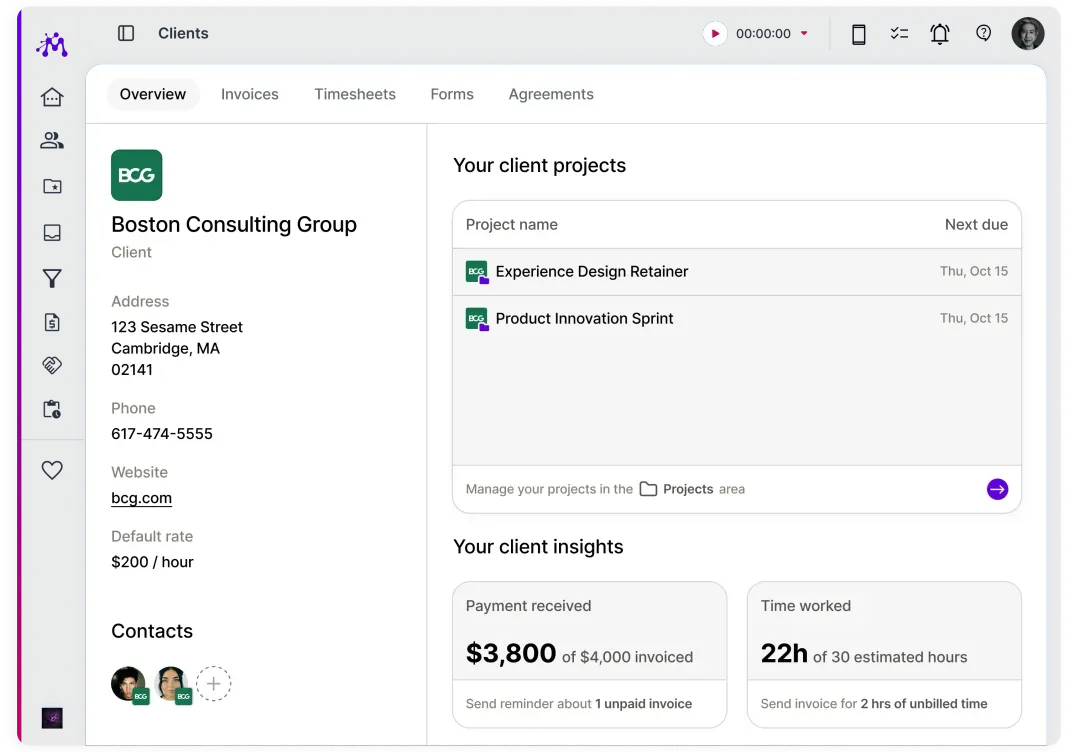
At a glance, Moxie helps you see exactly what’s happening with each customer: from where they are in your pipeline to deadlines, deliverables, and more.
You can try Moxie CRM free for 14 days with no credit card required.
Hubspot is a CRM for consultants that has been on the market for a long time. The crazy thing about Hubspot CRM is that it’s 100% free.
Yes, indeed free. Not “free for a limited time” or a free trial. Not free with limited capabilities. It’s completely free.
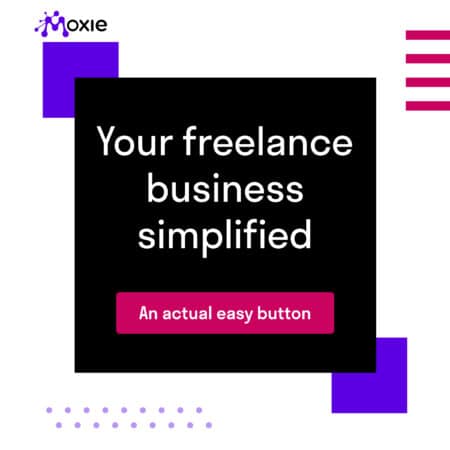
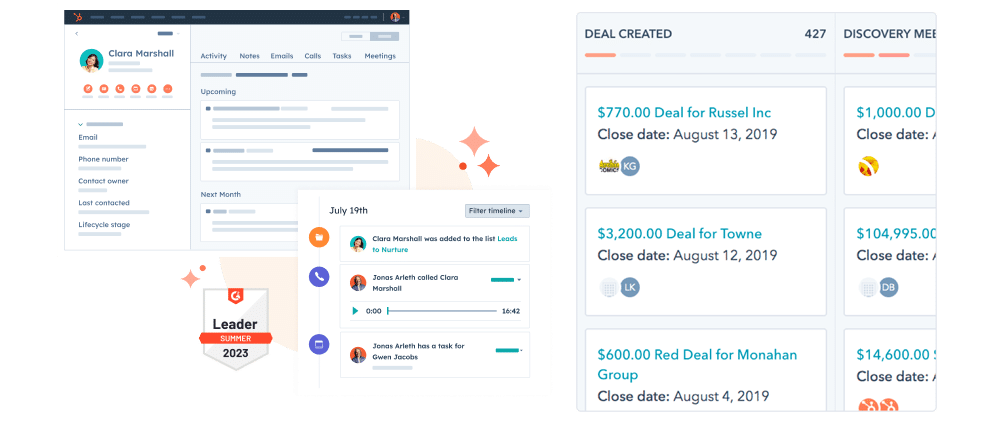

The trap ? They will try to sell you their other products. But it is okay. You get access to a robust, powerful and incredibly useful CRM at no cost to your consulting business.
You can try Hubspot CRM for free here.
In your search for the perfect CRM, you may have also come across Keap (formerly InfusionSoft).
Keap lets you collect and organize new leads, automate personalized messages, and send targeted marketing campaigns via email and SMS.
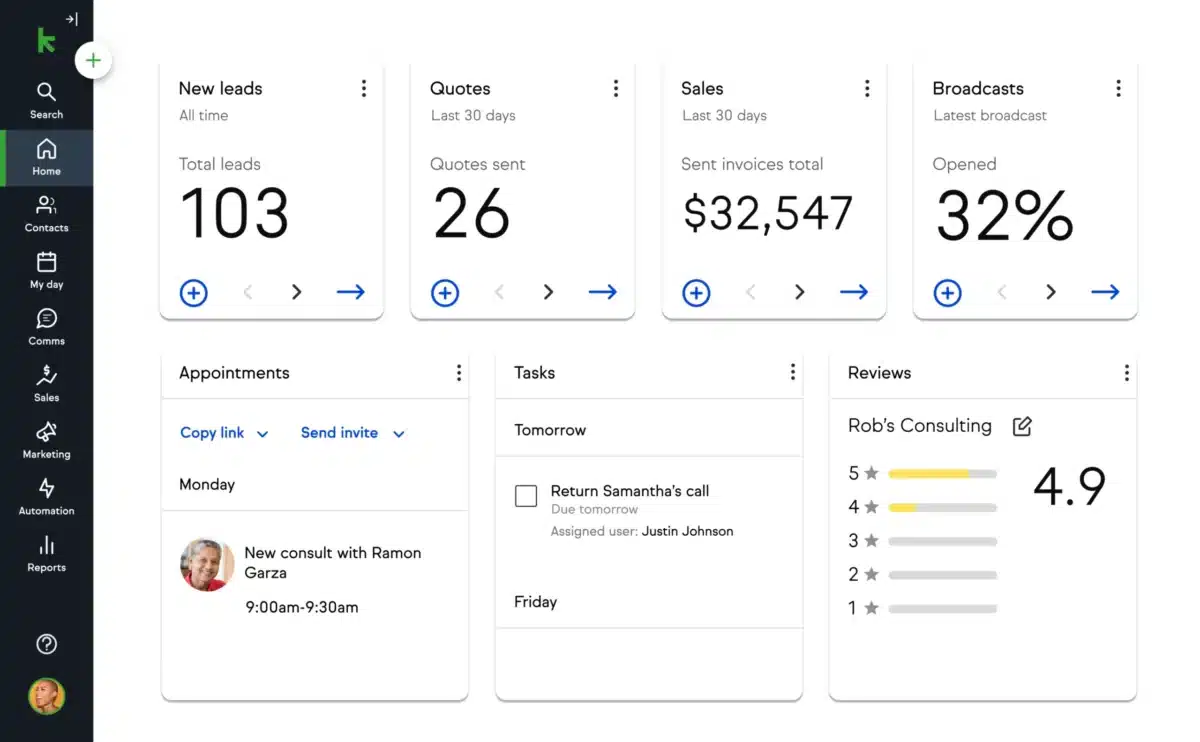

One thing I also really like about Keap is their coaching and support. They truly care about your success. In fact, they have a “90 Day Growth Guarantee” which basically states that if your sales and revenue don’t increase in less than 90 days, they will give you your money back.
You can try Keap here for 14 days and test their warranty.
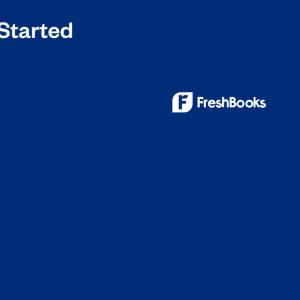


With an extensive suite of tools and features, Monday.com is a robust and modern application that consultants can reap huge benefits from.
The Monday CRM tool offers tons of customizable features, including sending and tracking emails (including mass emails if that’s your style). It allows you to track customer activity and interactions so you never forget where your customer is in your pipeline or process.
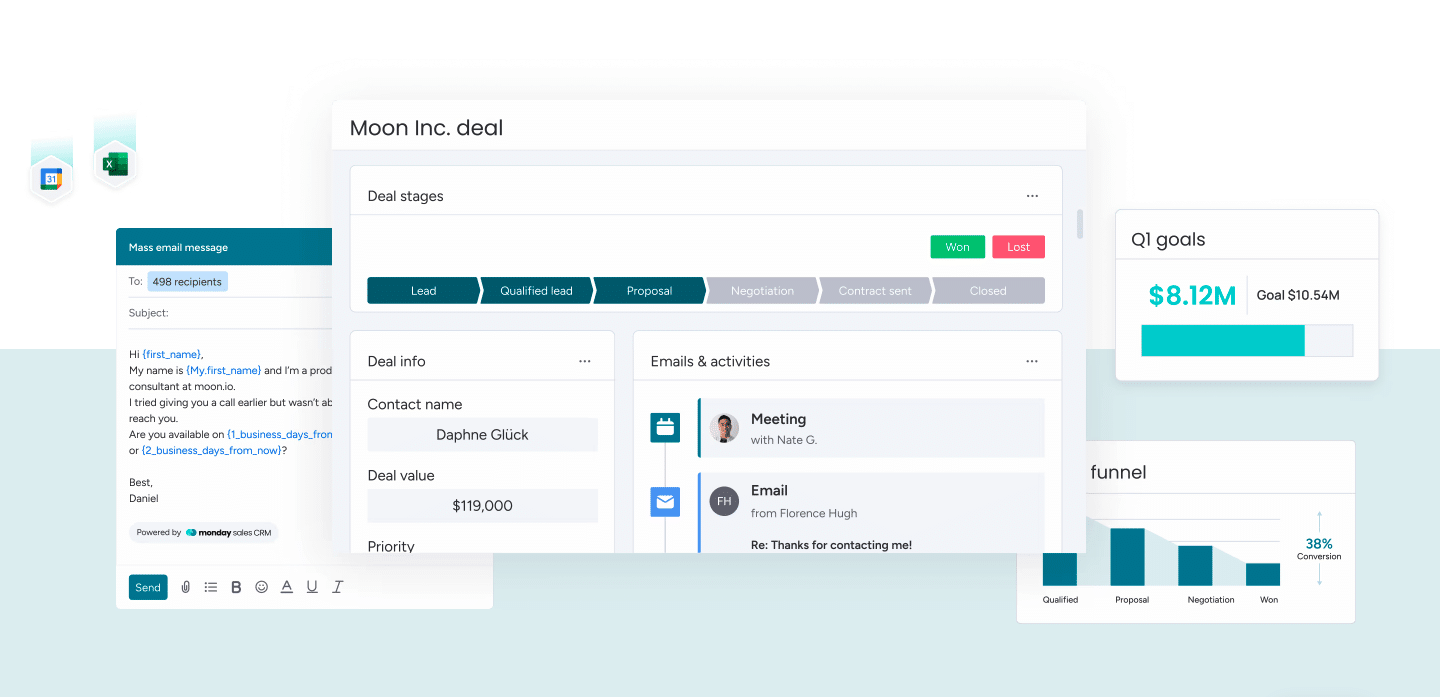

It also helps in sales forecasting, lead capture and much more. It’s a bit more expensive, but if you need a really sturdy tool, it may be the perfect solution for you.
You can get started with Monday’s CRM for free. Depending on what you need in a CRM, you may be able to use their free product forever.
Bloom is another CRM to consider when growing your consulting business. Bloom’s goal is to get you out of your email inbox and help you manage your customer relationships like a professional.
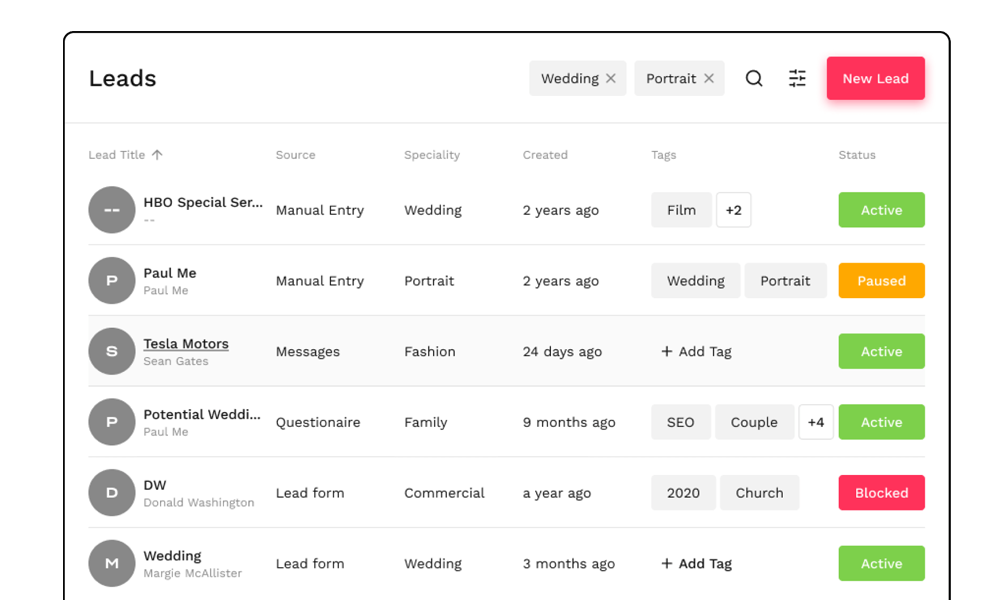

If you only use email, you risk losing contacts, forgetting old clients, or missing out on opportunities altogether. But with Bloom’s CRM, you can track every important relationship with the depth and detail you need.



You can use this link to try Bloom for free and save 15% on your first year.
If you’re looking for something extremely simple but still customizable, consider using Trello for your CRM.
It’s definitely not as sturdy as some of the other options I’ve included in this list, but sometimes it’s okay.
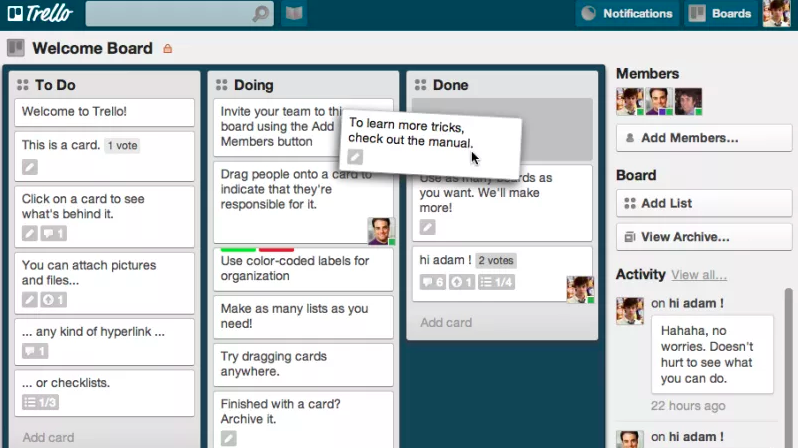

If you’re just starting out as a consultant, a simple tool like Trello might do the trick. And if you’re more focused on moving customers through your pipeline, then Trello’s “Kanban” style format will be perfect.
It gets a little more complicated, however, if you want to keep customer details forever. It’s just not really built for that. It’s really designed for task management and an ever-changing list of items (such as clients).
Take a look and try Trello (it’s free).
Capsule is a very simple yet powerful CRM option for consultants.
I like the simple design of Capsule, but don’t let the simplicity fool you, Capsule is a robust CRM that can meet all your customer management needs.
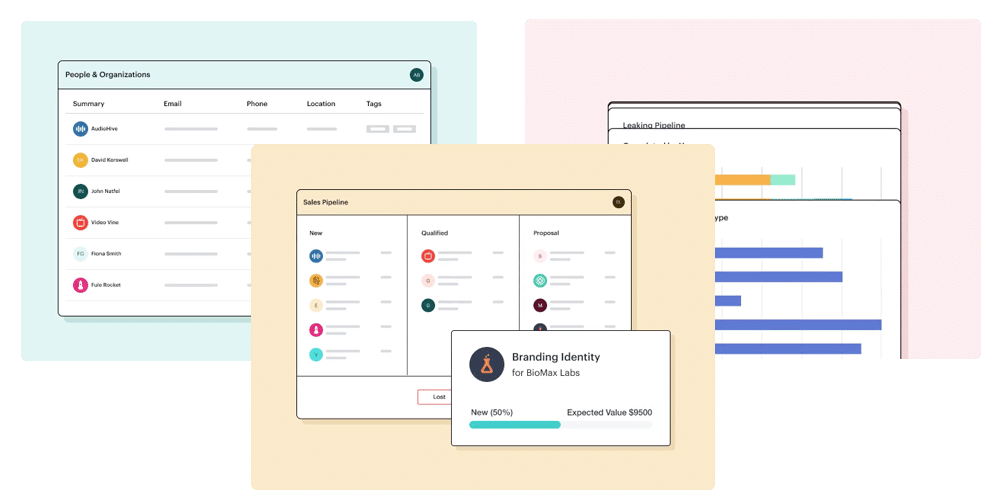

I’m particularly intrigued by Capsule’s reporting features that allow you to see which efforts are having the greatest impact on your business. This allows you to double down on what works and stop wasting time on what doesn’t.
You can try Capsule free for 14 days.
Pipedrive is another great CRM for consultants that has grown a lot over the years.
As you can infer from the name, Pipedrive primarily focuses on attracting and nurturing customers into your sales pipeline.
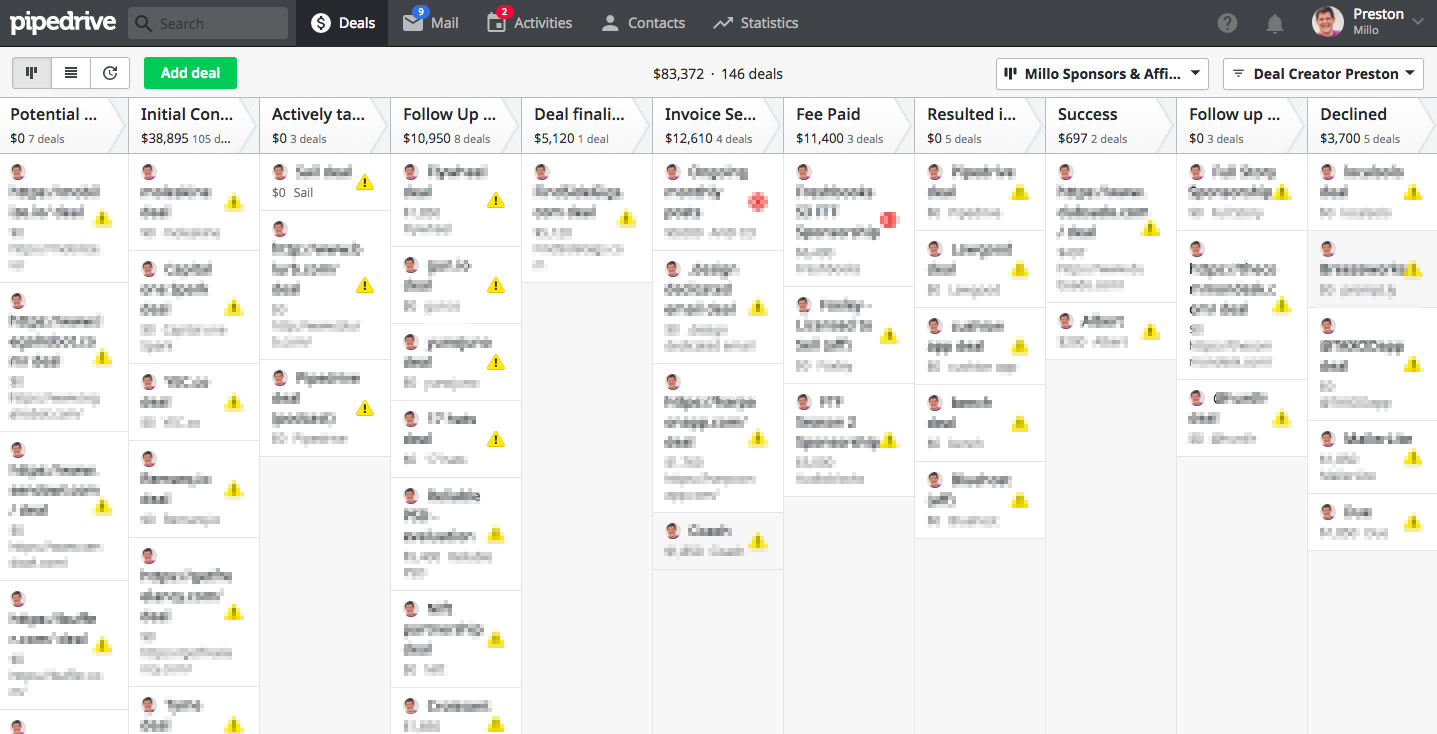

And while Pipedrive doesn’t have as many features as some of the other options on the list, it does have plenty of integrations with popular tools you already use in your business.
You can try Pipedrive free for 14 days – no credit card required here either.
Dubsado is another tool that has been offered to consultants for many years.
Dubsado focuses on automation through your CRM and is very well known for its workflows.
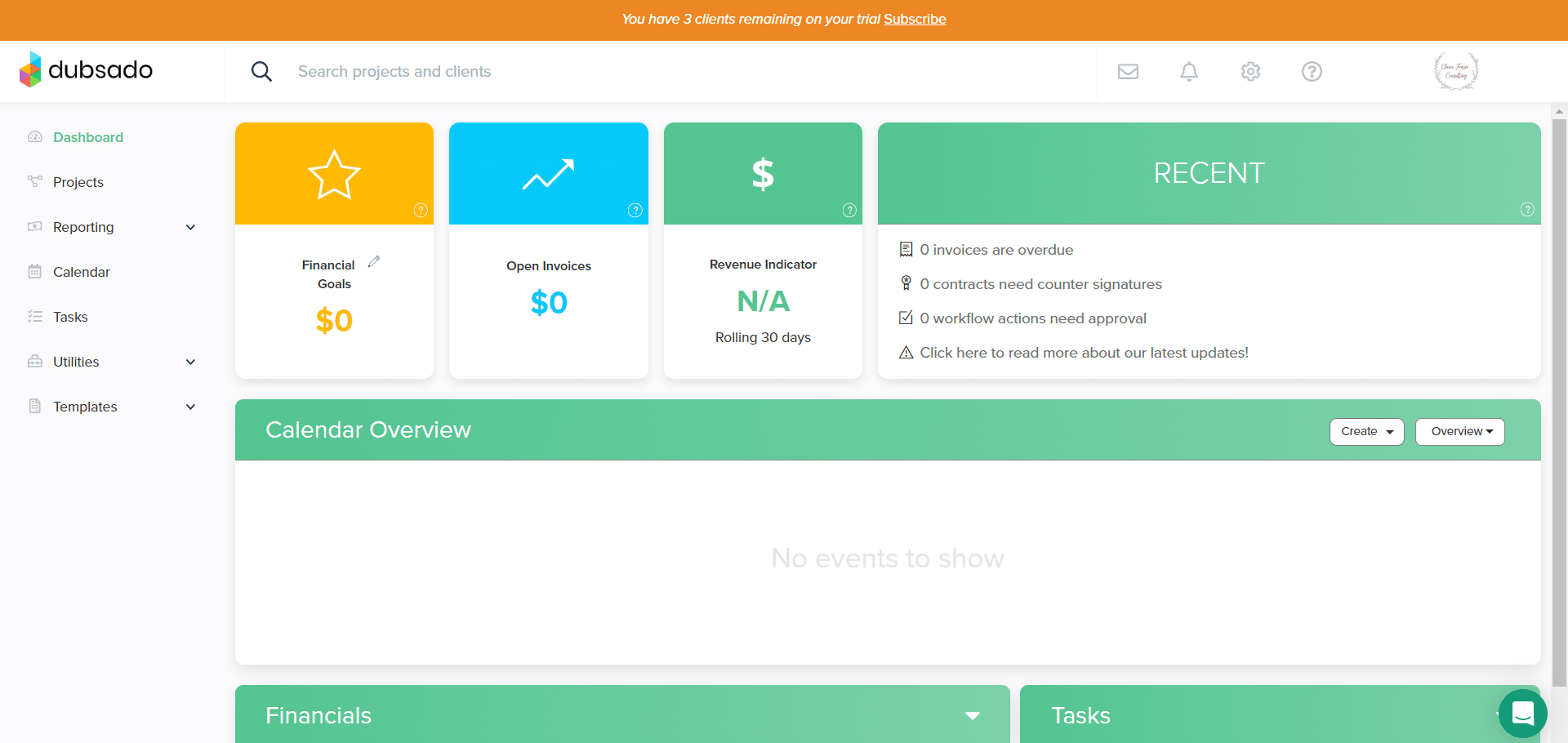

Essentially, you put repetitive tasks that you would normally have to do yourself on autopilot and Dubsado does them for you (sending invoices, reminding customers to pay, responding to inquiries immediately, etc.).
While they have some nice features, their CRM features are a bit more lightweight than what we’ve featured here today.
You can try Dubsado for free for an unlimited time: up to 3 customers.
What exactly is the best CRM for consultants?
So why should you worry about finding the right CRM as a consultant?
When you work as a consultant, your entire business depends on your ability to attract new clients.
And while most of us start out using some form of spreadsheet to manage our customer lists, as your business grows and you start collecting more and more information about your customers, you should find a safe, secure, easy-to-navigate place to store this information. information.
This is why many consultants use a CRM.
A CRM essentially gives you a place where you can store all of your customer information, including things like:
- Customer contact details
- History of interactions with each customer
- Sales Opportunities and Leads
- Customer purchase and payment history
- Scheduling tasks and appointments
- Customer preferences and segmentation
- Ratings and comments on customer interactions
- Support and service requests
And you can also use it for many other things.
Why Consultants Should Use a CRM
By using a CRM as a consultant, you give your future self the opportunity to periodically review the health of your business as it relates to your customer relationships.
Do you communicate regularly with future, current and former clients?
How well do you know your customers and remember important details about them?
Are you following up on leads in a timely manner?
These are all kinds of questions you should be asking yourself. And if you’re struggling in any of these areas, a CRM could be a good solution.
What to Consider When Choosing a CRM
When selecting your ideal CRM as a consultant, there are a few things to keep in mind. Here are some ideas to get started:
Can this CRM grow with you?
Depending on your situation in your consulting activity, it is important to determine whether the CRM you choose will be able to evolve with you.
Although many CRMs on the list today offer migration services, it’s still no fun. The ideal would be to choose a CRM and stick with it for at least a few years.
Does this CRM have enough of the features you need? And not too much that you don’t need?
My advice for choosing a CRM? Start simple.
But to start simple, make sure the CRM does everything you need it to. You wouldn’t want to outgrow this tool in a few months. If you are growing quickly, ask yourself: where will I be in 1 year. Or in 2 years? And try to find a tool that can adapt to inevitable change.
On the other hand, it can be tempting to choose a CRM that has all the bells and whistles you could imagine… “just in case” you need it.
But getting a CRM that’s too complicated can actually lead to frustration.
You want something right in the middle.
Will this CRM make your job easier, not more complicated?
This question comes down to the usability of a CRM. Take the time to try them out (most of the CRMs on this list offer a free trial) and make sure you like the layout, user experience, design, and features of the CRM.
If it’s difficult to use, difficult to look at, or just gives you bad vibes, try something else.
Do you see yourself making more sales with this CRM than without it?
The last, but not least, question is perhaps the most important of all:
Will you make more sales with this CRM than without it?
If you’re not sure, it may not yet be the time to start implementing a CRM.
If you are confident, then the decision is obvious.
The moral of the point, however, is this: don’t sign up for a CRM just because every other consultant you know is getting a CRM. Get a CRM because you know it will help you grow your business.
Choose the CRM that suits you
No matter where you are in your journey as a consultant, there will be a CRM suited to your business. But as a reminder, this is not something you want to rush into. Don’t let decision paralysis hold you back, but be sure to do your due diligence before landing on a specific solution. I hope my list and tips today were helpful. Good luck!
Continue the conversation…
Over 10,000 of us chat daily in our free Facebook group and we’d love to see you there. Join us!

